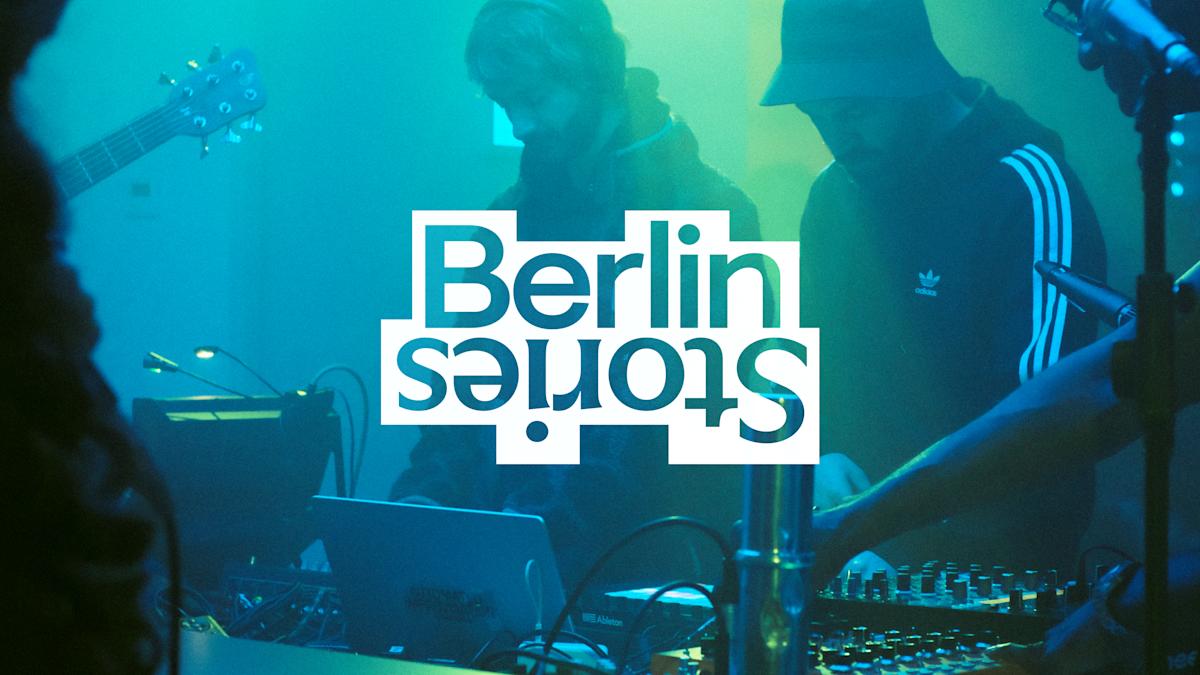
Berlin Stories
This week: Black history month, fusion soundscapes, soli kufa
Loading
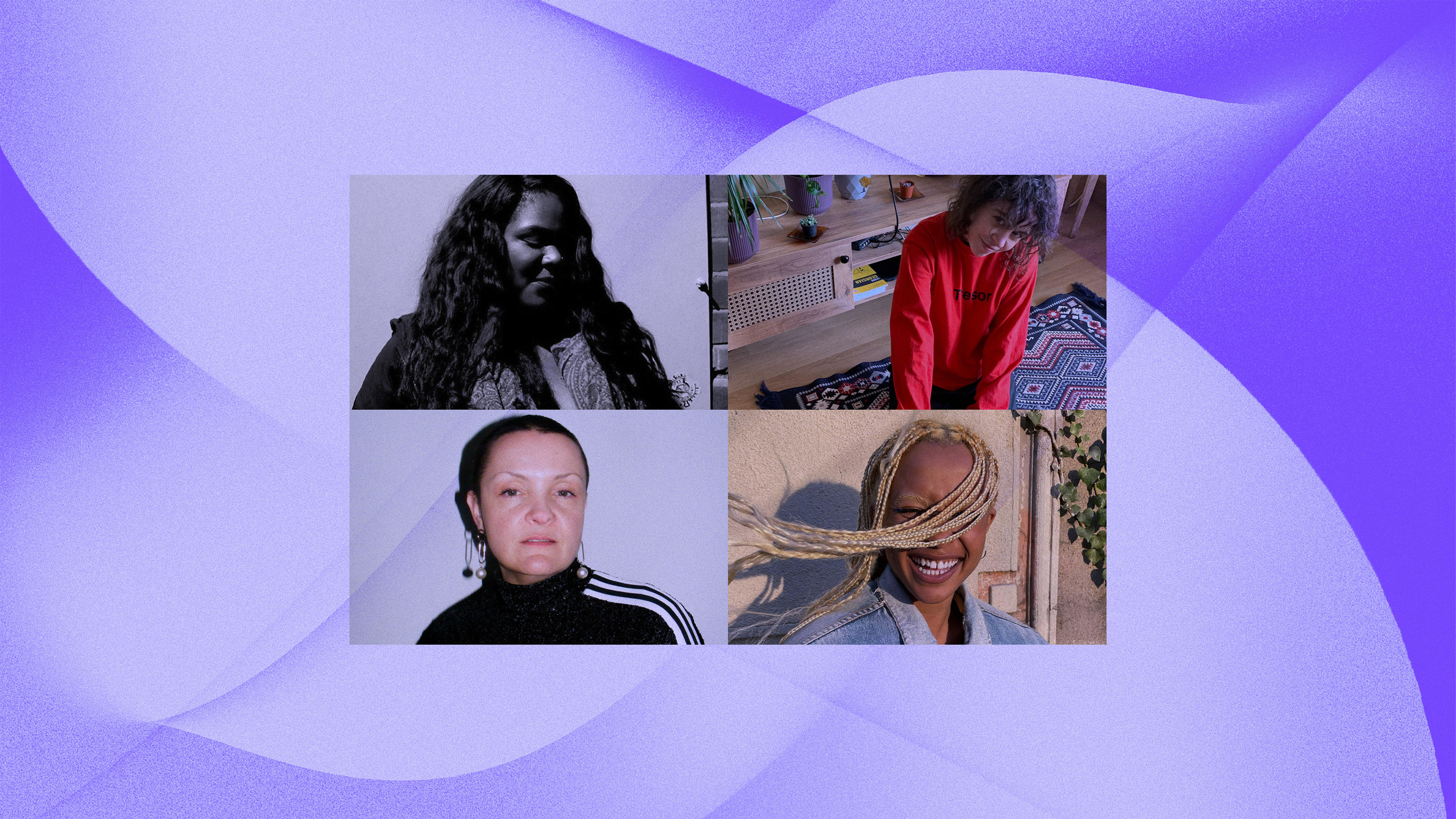
We hear from 4 female/non-binary artists working in electronic music.
By Héloïse Leclercq
Building a music industry that breaks free from patriarchal systems is a lengthy process. FLINTA* people — a term used in German contexts to refer to women, lesbians, intersex, non-binary, transgender, and agender people; the asterisk represents all non-binary gender identities — continue to be underrepresented across scenes and genres.
In 2023, only 6.5% of music production is attributed to FLINTA*, starkly contrasting with the overwhelming 93.5% contribution from CIS-men, according to the USC Annenberg Inclusion Initiative. This disparity is particularly evident in electronic music, where they comprise only 4% of the top 100 songs, as revealed by the PRS Foundation.
There's also a serious gender-based disparity in earnings, as Black women music creators earn 25% less than white music producers according to Black Lives in Music. Systemic inequalities and disparities are especially intense for BIPoC, individuals with disabilities, and the LGBTQIA+ community in the music industry – 67% of musicians come from privileged backgrounds according to some studies.
Initiatives offering educational space and counselling for FLINTA* play a pivotal role in fostering inclusivity. Berlin-based collectives like Femme Bass Mafia, Female:pressure, BLVSH and Future Female Sounds exemplify this commitment to providing safer educational environments. Collectives that offer platforms and events focused on supporting FLINTA*, queer, BIPoC, and marginalized artists are equally essential. Lecken Berlin, Slime, Room 4 Resistance, weeeirdos are some of the many Berlin collectives actively engaged in antidiscrimination and antiviolence efforts, contributing to a more inclusive and equitable music industry landscape.
FLINTA* play a significant role in shaping contemporary electronic music by constantly reinventing and experimenting. This article features interviews with artists Ifeoluwa, Flore, ophélie, and Vanille, providing insights into their relationship with music production.
Ifeoluwa
Ifeoluwa, also known as Yewande Adeniran, is a writer and pioneering multidisciplinary artist leading INTERVENTION, a production and DJ workshop championing inclusivity in dance culture. They draw heavy inspiration from drum-heavy sonics, UK club music, and abstract techno, reflected in their curation of the Intervention compilation and leadership of ipaadi records.
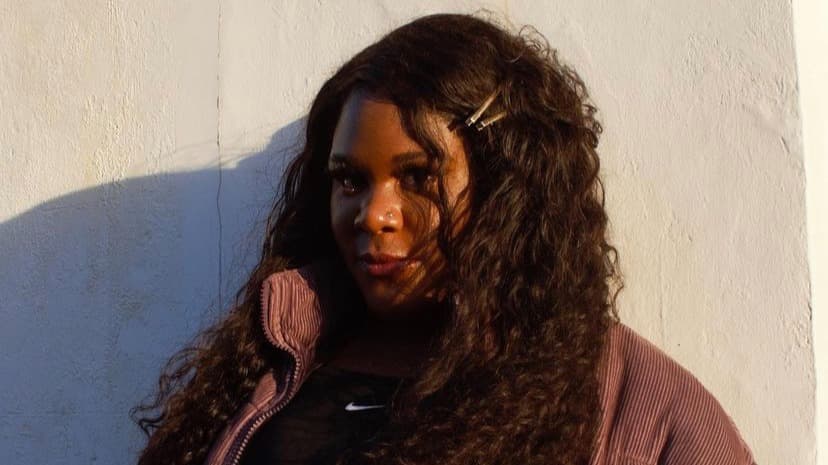
How does your multi-disciplinary artistic background as a writer, mentor and academic influence your approach to music production and DJing?
I try and weave all my practices into one as they all inform each other. My writing ranges from music reviews for dance music publications to more serious political musings on the state of the world. One can’t exist without the other. Any artistic output for me personally is a reaction to the world around us. That includes my fondness of looking back to the music of my early teens - guitar music - the last time everything felt alright. And that was pre the global recession too. Then music went darker, faster and weirder as a consequence.
What inspired you to create INTERVENTION?
Trying to find out who I am and what on earth I’m doing in life. I love dance music and I also love human history. Once you dig into the history of dance music and look around dancefloors, in publications, even on the radio, you start to notice a theme of exclusion, if not gatekeeping. Some strides have been made in regard to gender, race and sexuality but it’s more often than not surface-level. And it can be one step forward and two steps back, due to backlash from those with societal power, even interpersonally.
How does it contribute to provide an inclusive environment for FLINTA* and marginalized communities to celebrate dance music?
INTERVENTION aims to take dance music back to its roots, back to what inspired a counter-culture movement of sorts, to make sure that we resist the whitewashing, pinkwashing, small crumbs of faux gender inclusion and commodification of dance music across the board. We especially encourage people to start their own platforms and collectives and run their own club nights, this helps to foster a healthier DIY environment where we’re not fighting for scraps and instead building communities. I hope INTERVENTION has inspired people over the years to show up as their full authentic selves.
Having supported and shared stages with a diverse range of artists, how has this exposure impacted your artistic journey as a FLINTA* artist within the music scene?
It’s been both a positive and negative experience. The industry is pretty brutal. But I’ve also made lifelong friends along the way that I love very dearly. Hypervisibility doesn’t always, especially for those who are far from the margins in terms of how they present themselves, translate into support or into being able to create art or music or anything creative. A lot of the time it’s a long tough, trying road with moments of joy and connection. I’ve been very lucky to share the stage with inspiring artists like I.JORDAN, Loraine James and Anz, to name just a few and those experiences remind me that we’re all in this together and that’s what keeps me going. They’re all producers with a wide variety of sounds and inspirations, so seeing them thrive gives me hope.
Flore As an artist, producer, curator, DJ, and teacher, Flore's versatile projects include live performances, workshops, and extensive electronic music production. Influenced by breaks, drum and bass, and Jamaican sound systems, Flore has developed a strong interest in new forms of sound. She founded POLAAR ten years ago, pioneering hybrid bass genres drawing from grime, footwork, and breakbeats, inspired by sound system culture. In 2020, she released her second album 'Rituals', reflecting two decades of artistic evolution.
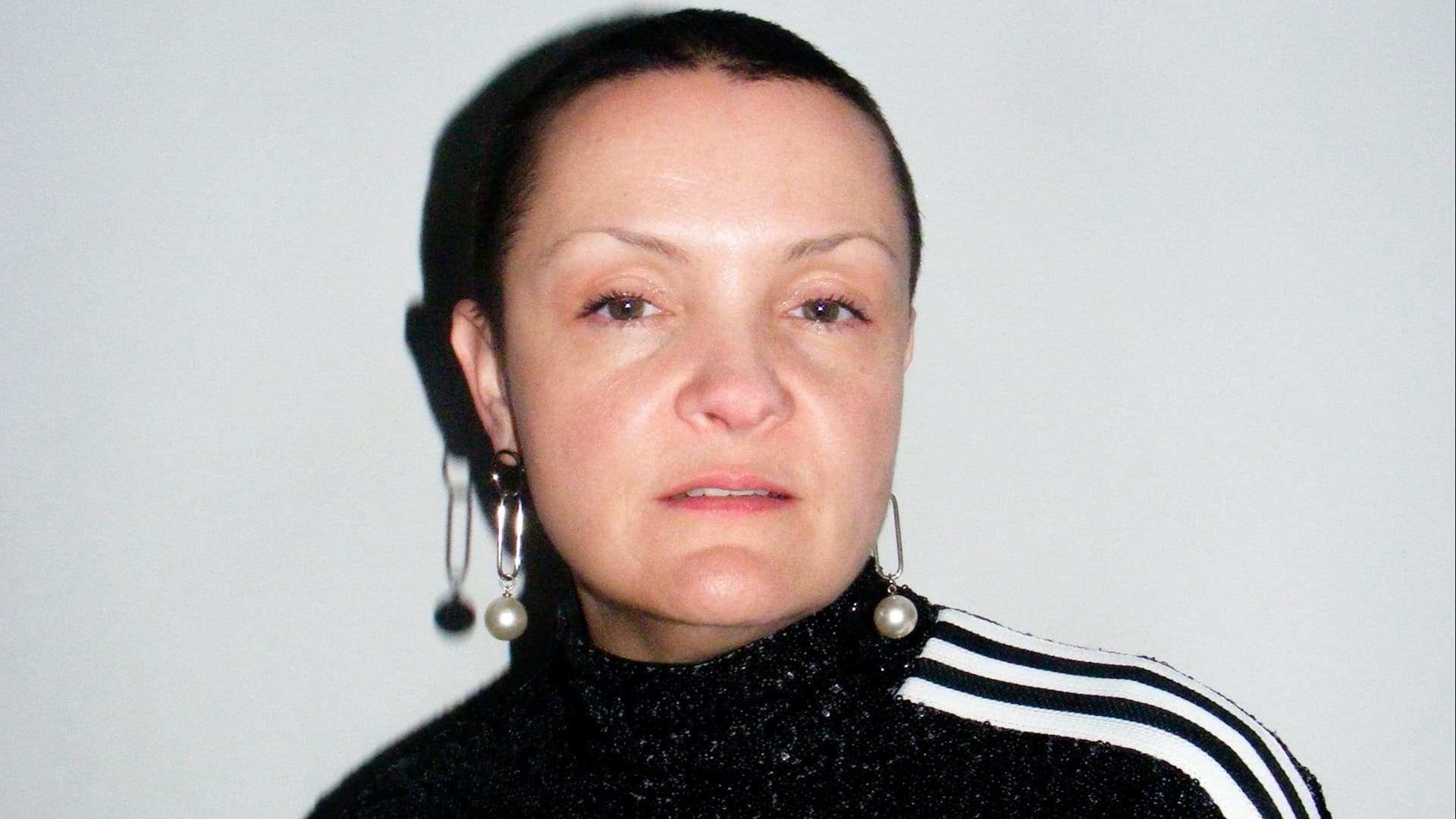
Could you briefly retrace your musical career and tell us what motivated you to get into music production?
I discovered electronic music in the mid-90s (my big brother worked in a record store at the time), and totally fell in love with it owing to Goldie’s album Timeless. I bought my first computer (Atari 1040STE) in 1997 to compose electronic music. I got into DJing a bit later. I first wanted to compose electronic music because I wanted to be autonomous, to feel like a conductor of my own digital orchestra, this is what really got me. At the time there was no community at all and no internet so I released my first EP in 2004. It took me some time to feel comfortable with the music I was doing. As the first French woman and the eighth in the world to obtain Ableton Trainer certification, what is your view on the evolution of women's representation in music production?
Now we are a few more female ACT in the world (probably 20). But yeah, there is still a long way before we see real equality between female and male in this tech side of the music industry. In music production I can definitely see some improvements, but it depends on which scene we’re talking about. I don’t feel like there are more big female headliners in the mainstream techno scene for example, they are the same unbeatable heroes like Helena Hauff or Peggy gou. But if you pay attention to what’s going on in the more "niche" ones there are definitely more and more women. And you can see that in the lineups. As head of POLAAR since 2012, what are your priorities when it comes to supporting and promoting FLINTA* artists in the music industry?
I wish I could do more, to be honest. I don’t receive many demos produced by FLINTA* so at the moment we have more male producers signed on POLAAR than women, for original releases I mean. When I ask for remixes I try to have a different approach and do 50/50, if not more.
Besides running POLAAR I do a monthly video called Sisterhood Collection, where I present a FLINTA* artist I love, explaining why, which tracks got my attention etc... This idea came to my mind as a way to fight against this common idea that there are not enough female producers, when there are in fact, a lot. It also came to my mind because I feel that as a professional DJ, who has time to search for new music and new artists it is my responsibility to share these gems with people who can’t afford to spend time to do so. The more people hear about female producers the more they’ll be shocked not to see them booked, that’s my feeling. Have you seen many FLINTA* attending your workshops, both in France and internationally, and do you think their presence could motivate more women to enter a field where they are currently underrepresented?
Absolutely! As a female teacher, I have more FLINTA* attending my courses or workshops than my male colleagues, even when these courses are open for everyone. I think in the tech field it is very important to have women as references, even for men! The idea is to make people realize women can be everywhere and that we all win when it is the case.
After releasing your second album Rituals and having experimented with production in various musical genres, particularly bass music, do you think that some genres or sub-genres are more open to FLINTA* representation than others?
That’s a tough question… for a long time I thought techno and house scenes were more open to FLINTA*, but I think things are slowly changing in the drum’n bass/dubstep scene which used to be a very misogynistic scene. Now we have some very strong figures, like Sherelle or Mandidextrous, and it is really refreshing. In the more "experimental" bass music scene, there are a lot of females. I think it is also because it is a scene which is less euro/US-centric.
Vanille
With influences ranging from acid house to hard dance, trance and psy-trance, Vanille's electrifying performances are a rollercoaster of emotions, blending pounding beats with moments of euphoria. Beyond her music, Vanille is also a trailblazer, using her platform to champion inclusivity and diversity within the industry through her project Headbutt, dedicated to spotlighting the black and queer community in electronic music. Vanille released her debut track ‘Goat Skin’ in November last year.
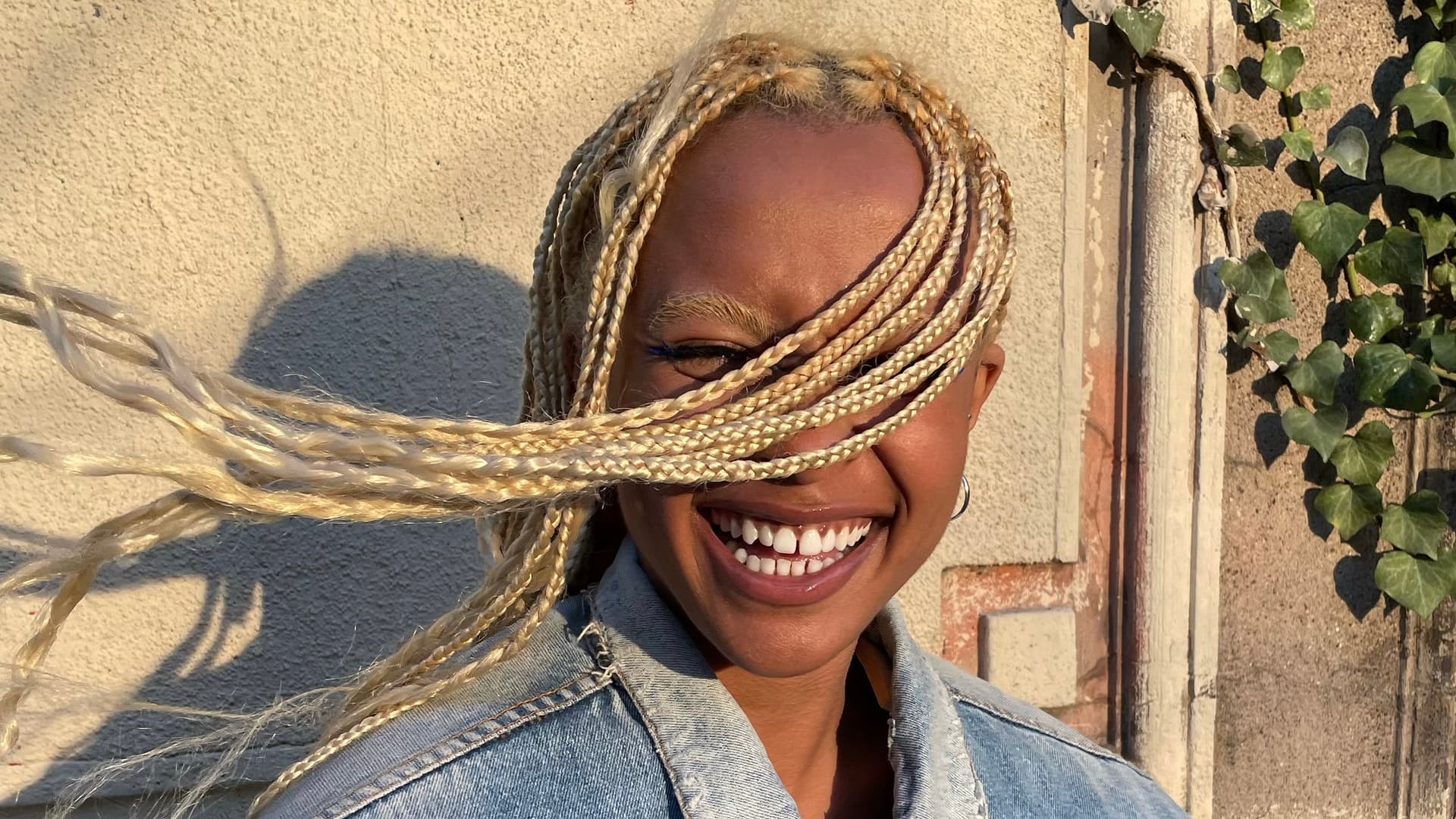
What drove you to initiate Headbutt?
Headbutt originated from a realization that today's techno scene was so dark and dominated by people who do not look like us. So, with Marie, we decided to create our own space. Blending various genres like acid house, hard-dance, trance, psy-trance in your sets, how do these diverse influences coalesce to shape your distinctive sound?
I appreciate specific elements of every genre; I love a trance-pumping bass, a hard-style triple kick, and a psy-trancy surprising drop. In 'Goat Skin,' I blended acid bass with classic 909 rhythms to make it sound old school. Not a big fan of lead melodies, so I decided to let the djembe talk - putting black culture to the front! I like my music to be a big blend of emotions and a lot of energy with a touch of nostalgia, quite reflective of my personality.
You recorded your own vocals and personal djembe samples for 'Goat Skin'. Do you have a particular process for creating music?
Usually, I go into the studio with ideas, record a whole bunch of samples, and rebuild them later in the software. But most of the time, it's the mistakes that sound the best!
Who inspired your musical style?
My parents inspired my musical style the most. My dad is a big Disco, House, and Electronic music lover, and my mom always played Caribbean Zouk and West African music while I was growing up.
ophélie
ophélie is a Berlin-based DJ and music producer who is celebrated for their mesmerizing soundscapes and multifaceted passions. They are known for their love of bass, drums, and canine companionship, and their musical style leans towards textural and often melancholic realms. Renowned for crafting unconventional rhythms, ophélie extends their creativity into community engagement with a monthly Therapy Dog show as a resident DJ on both Refuge Worldwide and Kwia.
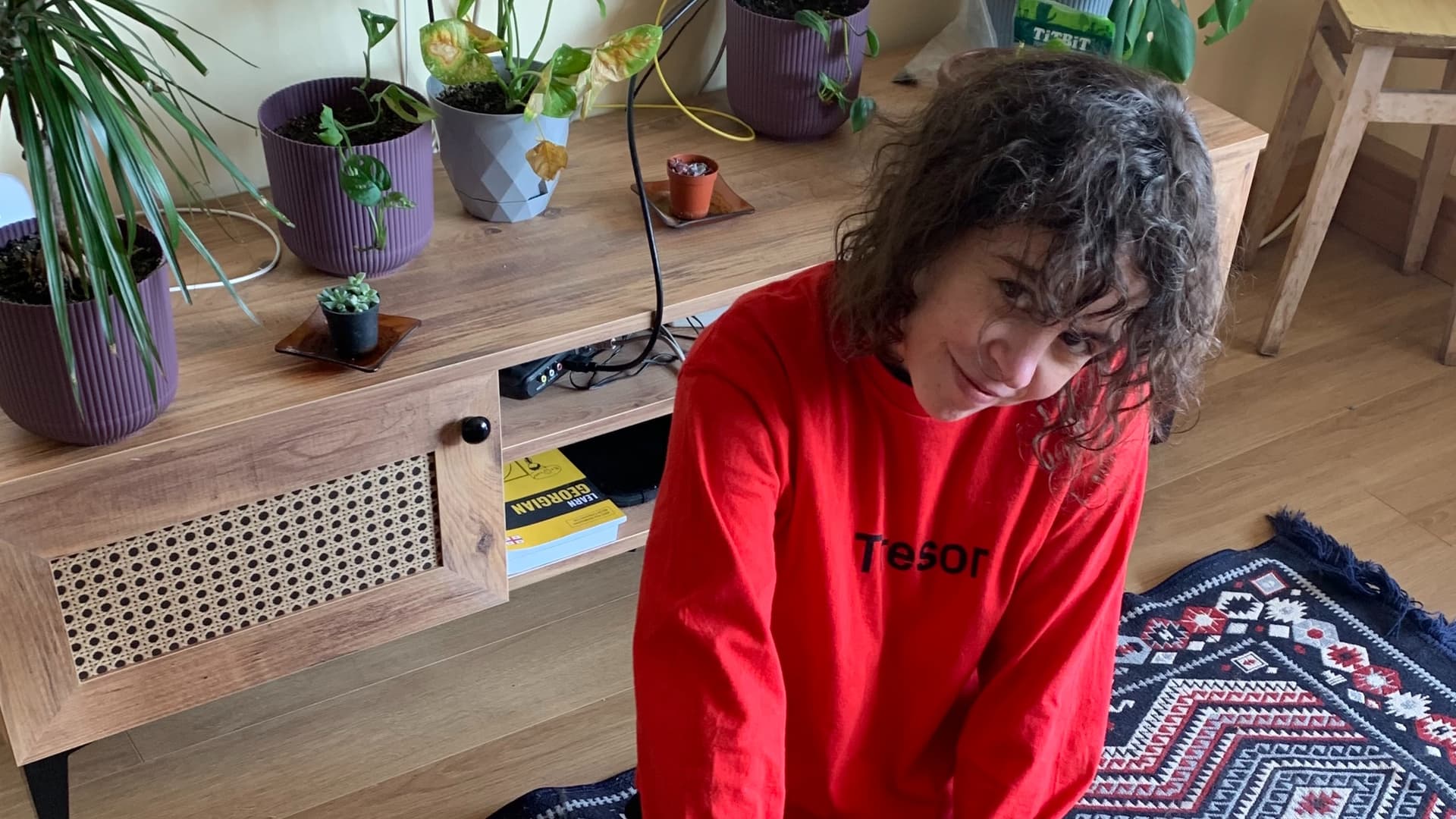
How did you get into music and for how long have you been producing?
I was always curious about music production and started using Ableton for the first time more than 10 years ago. During that period, I was struggling to understand anything I was doing and had to rely on tutorials or friends for the smallest things. I started it again more seriously around 2019, and then had a little more time to dedicate to it at the beginning of the pandemic. I was still struggling to know what I was doing though (and still am now). Joining Open Music Lab in 2020 allowed me to go to some workshops and music production courses, and helped me gain a bit more confidence, and find a community of other producers who, like me, did not all have a strong background in music theory, or may have not studied sound design academically.
How has releasing your first track on an experimental club label impacted your approach to music production in the industry?
I released my first track last summer on a compilation by the Italian experimental club label Early Reflex. I like this label and played some of their tracks in most of my sets, so I was really happy to have my first track on there with lots of artists that I love.
I released my first EP ‘Pipa Pipa’ on Berlin label hundert. I also love this label and their fun and exciting approach to bass music, and I'm so thankful that I was given the chance to have a solo release on it. I feel like I am still learning a lot and I hope that I’ll be able to keep on growing as a producer, and really find my own sound. What do you particularly like about being a DJ and producer? What do you find challenging?
As someone who suffers from social anxiety, I enjoy being able to express myself and what I feel without having to talk. I am an overthinker and DJing allows me to focus on something I love for a moment and stop worrying and having tons of thoughts at once. The downside to this is that I find it challenging to be exposed on social media, socialise, and I often find myself overstimulated and needing to recharge.
In music production, I enjoy being able to create something quietly and in my own time, without knowing what the result will be, but as a slow learner, I sometimes get frustrated by how slow progress is made, or by not being able to achieve exactly the sounds that I have in mind. Staying long hours on the computer is also not ideal for mental health.
What role do you believe visibility and representation play for FLINTA* in the music production industry, and how does this influence your creative journey?
I think it’s so important. While representation is getting better in DJing, there is still a long way to go, and even more so in terms of music production. Not having many role models growing up has prevented many of us from even considering seriously going into music production. Most of the sound design roles and tech roles are still way too often taken by males, and I feel like many FLINTA* people are only just starting to allow themselves to go into more tech-oriented roles, and to accept that they can also be good at technical and nerdy stuff, if they are given the time and opportunity to learn and grow. Seeing more FLINTA* producers emerge and grow is a big source of motivation and inspiration for me. Are there any FLINTA* artists that you draw inspiration from — if so who and what genre of music?
Yes so many. I was really inspired by Mira Calix, who managed to carve herself a space in a very male-dominated genre of music. This is a genre of music that I love, but have always felt intimidated by, due to the immense majority of men in it, and feeling like I miss too many technical skills, for a genre deemed “complex”. I also love FLINTA* artists who are doing electronic live sets, like Zoé Mc Pherson or Loraine James, as this is something I hope to achieve as well in the future. I am also really inspired by some friends and upcoming producers and artists that have a great unique sound, like Small Crab, Beatrice M, Abibi, laenz, Blume, upsammy, Laura BCR, Gi, CCL, re:ni, or Mia Koden, among many others!

This week: Black history month, fusion soundscapes, soli kufa

A screening, conversation, and live performance at Niemetzstraße 1.

Refuge Worldwide residents head to Romania.